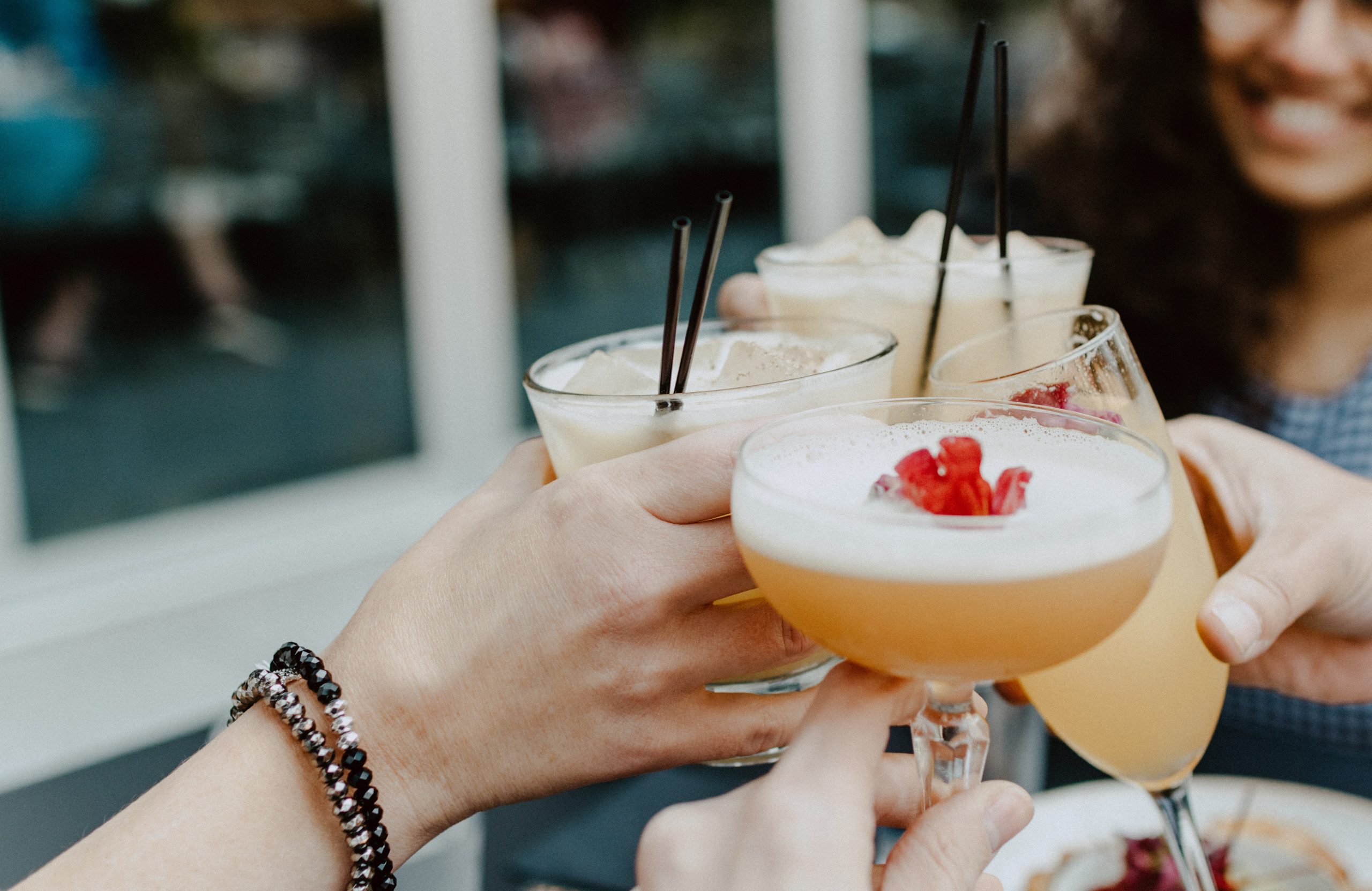More of us are breaking up with social media. In a world where we need human connection more than ever, social media can make us feel more connected, yet it can also cause us anxiety or become addictive. But for those who rely on social media for work, we can’t disconnect altogether. Writer and yoga teacher Luisa Skinner explores how we can find a middle path and use social media more mindfully.
Rewind to late Summer 2022. Making headlines are intense heat waves and natural disasters, major shake-ups in politics, and the monumental funeral of Queen Elizabeth II.
But amidst all this heavy news my phone is buzzing with another, quieter tidal change: the people I follow online are breaking up with their phones.
Perhaps it is just me that is noticing it. Each week, more and more are leaving like rats from a sinking ship, deserting apps entirely or taking long sabbaticals, citing the benefits of better focus, increased creativity and that ultimate trophy of more oh-so-precious time.
So enslaved to this sleek amalgamation of metal and plastic are we, so addicted to instant gratification and endorphin-brewing tapping and clicking, that we haven’t noticed we are losing control and with it our health and happiness.
This is not fresh news. But the way many of us are now setting boundaries and having a grand realisation perhaps is. The way we’re dealing with our addiction is changing. We are beginning to understand that we have a choice.
I began using social media as a business tool in 2014 after joining a popular network marketing health company.
As I qualified in personal training, fitness and yoga in the subsequent years my followers built, along with the burden of responsibility heavy on my unprepared shoulders. Every ‘like’ was a hit of dopamine, a warmth of acceptance with a sinister undertone. In 2019 I officially burnt out.
My neglected social media then became a place of guilt that I dragged around with me like a ball and chain.
Ever since I have been like a digital jack-in-the-box; going ‘all in’ with posting and sharing, until an inevitable mini-meltdown month, weeks or even just days later leaves me ghosting all but my closest WhatsApp-able friends.
Heading into 2023, social media is fast and frantic, pointy and flashy. I fear it’s leaving me behind; I’m simply too tired to work out the new technology, too weary to learn the best techniques to win over the algorithm.
Some seem to thrive on this increased noise. For others it becomes all-consuming.
The bright lights and toxic positivity don’t sit well with those of us who are sensitive to too much stimulation, those of us who are neurodiverse, those of us who suffer from mental illness, and those of us who become easily overwhelmed.
For over three years now I’ve been trying to find a happy medium.
There is a perilous link between social media and our perceived identity. Social media has seen me shapeshift identities like others change their socks, slinking out of one skin and seamlessly into another, depending on my newsfeed that day. From sheep to wolf, and back again.
The number of times I’ve changed my Instagram bio is tragic. It’s vital, it seems, to sum up your complicated and beautiful human existence into 150 characters. This is both unreasonable and ridiculous.
We are already setting ourselves up to fail. I see that now.
Perhaps you are reading this wondering what on earth all the fuss is about. Just turn it off, you may think. Uninstall, delete, deactivate, and put your phone away.
But for many, it just isn’t that easy. Latest statistics show that in the United Kingdom, we spend on average 110 minutes on social media per day, across 67% of the population (UK Social Media Statistics and Facts – Cyber Crew, 2022).
This constitutes a lot of our waking, productive time. And to what end?
The pull, the draw, the enticing promise of finding something wonderful or, even worse, missing out on something life-changing because you put your phone down for a hot minute is one of life’s most common online ailments.
Social media is constructed to feed our greedy egos and insatiable need for entertainment. There is distressingly a backstory for anyone who feels this way, inevitably settled in past trauma, in lifelong insecurity, in decades of people-pleasing, now neatly wrapped in a shiny sleek bundle of polycarbonate and glass.
Social media is truly a place of unwavering overwhelm and crushing comparison. We all know everyone’s ‘Insta lives’ are the cherry-picked pieces of the jigsaw, the blue sky only, the full smiles, the celebrations. We are left wanting, bereft of enoughness, shoulders drooped and hope lost, simply by scrolling our phones. This has to stop.
I know that my social media will never reach everyone. I will never find all the people I could be inspired by. I will miss posts that could be life-changing.
As a recovering people-pleaser, a reforming perfectionist, and a human who is forever working on herself, that knowledge that I will never see everything is heartbreaking.
In the past, if I couldn’t do something ‘properly’ I chose not to do it at all. However, this quiet tidal change, led by those I look up to, to do things differently online, to rewrite old patterns of behaviour, has seen me pause.
This mass exodus from the apps, these strong boundaries that I have witnessed being built this year, have enabled a subtle shift from social media victim, to empowered user.
How wonderful it would feel to be in control of our scrolling. To use social media mindfully and with purpose. To share something beautiful and then turn off our phones and head outside with friends. To spend just a little of those two hours a day doing something else instead; resting, hiking, studying, swimming, reading, playing, meditating, smiling. Let’s do that. Let’s seize this opportunity, now.
So, what can we do?
There are countless suggestions online about how to use time-limiting apps, how to have one phone-free day a week, and how to take longer breaks.
I’ve been through them all and had to forge my own path. You may need to do this too, but if you would like somewhere to start, here’s what’s worked for me:
- I turn my phone off by 8pm and sometimes even earlier if everyone in my family is home safely from work and school. I teach yoga and run a charity gym so I work some evenings, but 8pm is always my cut-off point. If I ever find myself tempted to stay online later there is always a negative impact on my sleep from that blue-light stimulation.
- Ask yourself “Why am I using this app?” And then use it, just for that purpose. Despite the noise, Instagram sparks my creativity, setting off little fireworks in my right brain. I love creating ‘Stories’, putting together pretty photographs with short-lived captions, only 24 hours in circulation. There is far less pressure on a Story than a grid post.
- Try journalling or drawing a mind map with all the things that you love about a platform and all the things that you know aren’t beneficial for you. Where are the crossovers? What keeps coming up? What can you do about it?
- Unfollow and mute. Take your ‘following’ numbers down to the bare minimum, limited to those who genuinely inspire and uplift you. That way you will only see content that you love on your feed. Imagine that!
- Don’t be afraid to upset people (they actually may not be that bothered) and let every platform have its purpose. Two years ago I deleted all 1,500 of my personal Facebook friends. I didn’t take this decision lightly, but Facebook was no longer somewhere I enjoyed spending time. However, my yoga business, which is local to my community and needs to reach those in my area, still has its own page on Facebook. I also use Facebook groups to join writing challenges, sell my unwanted clothes and keep up with my son’s football training.
There is another way. I haven’t changed my Instagram bio in three months so my identity is solidifying.
My confidence is grounding itself. I’m finding my place and holding my head high as I erect those boundaries firmly, feeling proud whilst keeping my feet firmly on the earth.
I know I don’t want to lose those precious connections or that opportunity for creativity. I just need to keep working on a way to hold tight to the puzzle pieces that matter, but surrender the spares with gratitude.

Subscribe for free to Luisa’s Substack publication Salted HERE and follow Luisa on Instagram & Facebook
Living ‘coastfully’, Luisa Skinner teaches yoga and writes for weathered women, from her driftwood log cabin by the wild sea in the South West of the UK.
Ever curious about the natural world and how we can feel at our best whilst being mindful of our planet, Luisa manages a charity gym specialising in physical activity for those living with long-term health conditions, as well as leading several community eco projects.







